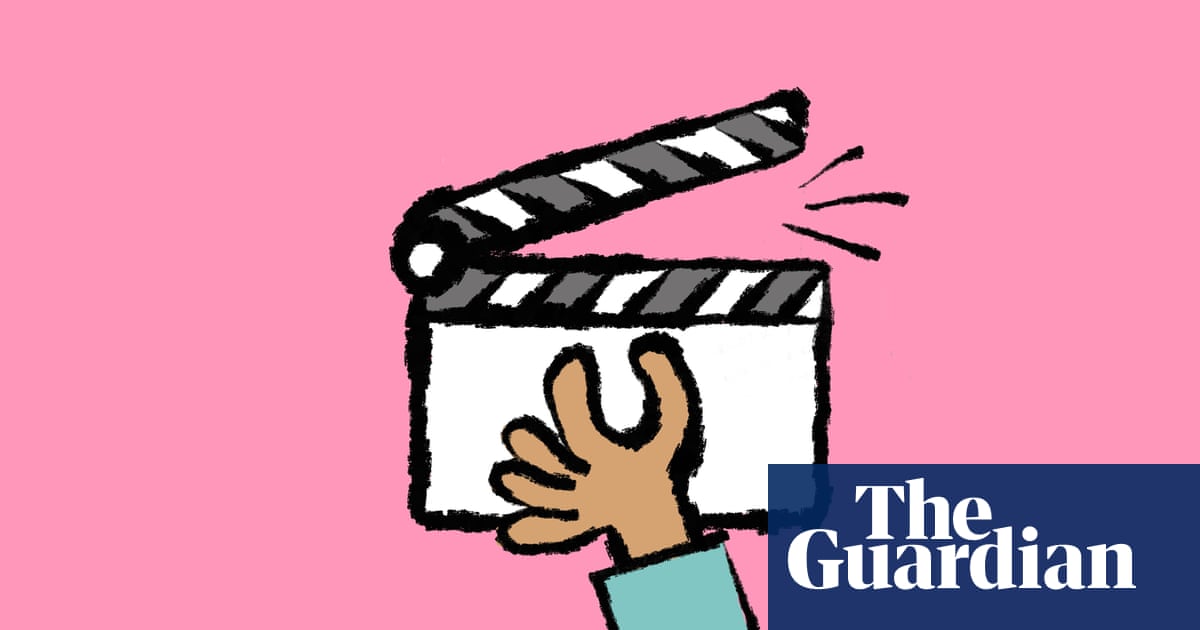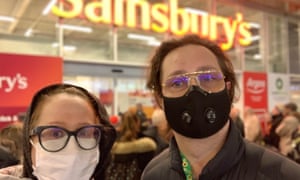From directors to independent cinema owners, freelancers to company owners: people in the film business on their struggles in a time of crisis

This time last week, it still seemed feasible the film industry might weather coronavirus. Only a handful of big-name blockbusters had been postponed in the UK and US, Cannes remained bullish and box office numbers werent wobbling too much.
By Monday, the picture was radically cracked. Ticket sales in those territories were pitiful. Distributors cancelled release after release. Cinema chains started shutting their doors. And, behind the scenes, the livelihoods of hundreds of thousands of people were destroyed.
We posted a callout on Monday asking for peoples stories; weve had hundreds responses, almost all of them full of shock, upset and confusion. The questions left unanswered arent just about how to pay the bills; but whether the industry can ever recover, and as Chinese cinemas nervously start to reopen how best to try and rebuild.
Misbehaviours release collided head-on with coronavirus
Philippa Lowthorpe, director of Misbehaviour, a comedy drama about womens libbers disrupting Miss World 1970, which opened in the UK last Friday
The campaign for Misbehaviour started last November. Our premiere was last Monday; between then and Friday, it was like a runaway train one that ended with us colliding head-on with coronavirus.
In the end, we made about half what was expected [330,000, entering the UK charts at No 8]. It was just so, so sad. Everyone worked like mad, and we were all set for a lovely big hit. The kind of press we had is like gold dust. And then: agony!
Still, I dont regret anything. We didnt consider cancelling the release because it was an unfolding situation that changed hour by hour. And Ive no qualms if the film winds up getting fast-tracked online. These are extraordinary circumstances, and theres a real role for film in cheering people up now, so Im happy for any joy we can give.

Plus, Im grateful we managed to do the premiere – lots of the real time characters in the film who hadnt seen each other in 50 years flew in, and it was the most moving experience. On the weekend, I did one Q&A in Bristol to an audience of about 30. For one tiny moment, I allowed myself to feel really gutted. But then the next day another Q&A was sold out although the cinema had capped the number of people so that everyone could sit separately.
Ive never felt this hopeless and bleak in my life
Blair Barnette, film art director
Im an art director on films; my partner is a producer and was recently diagnosed with a rare autoimmune disease and made redundant. After Christmas, our minimal funds began to dry up. I lined up work to take us through until August and by last Friday I was down to the last 100 in my account.
Over one hour, everything was cancelled. Thats 28,000 gone in an instant. My head started spinning. I realised the knock-on effect this would have in the industry and felt sick. It will be months before its gaining traction again, and once it does, it will be a feeding frenzy for us freelancers.

Ive never felt this hopeless and bleak in my life. My partner cant risk going outside because of his health. But the local supermarket wont allow me to enter during the time slot dedicated to elderly and vulnerable people unless he comes too. So Im bundling him up in a chemical face mask and Tyvek suit that I use for spray painting. Im trying to keep him safe, but I cant even seem to do that.
People still want to come in on Mothers Day I think they should stay home and rewatch The Sopranos
Kevin Markwick, owner and manager of
We were a pretty successful independent cinema until about a week ago. Our usual audience number on a Sunday is 1,000 last Sunday it was 178. On Monday, 65 people came in, most of them elderly, which I thought was insane. Then on Tuesday, it was down to nine. And Boris Johnson finally advised cinemas close, rather than having the nuts to say they had to.
Luckily, we started the year with our best-ever takings, thanks to films like Little Women, 1917, Emma and Parasite. Our speciality is upmarket mainstream; if your mum wants to see it, were going to make a fortune. Our biggest film of all time is The Kings Speech.
Were a restaurant too, which is currently closed, but when we rang people who had booked for Mothering Sunday, most of them said they still wanted to come. I dont know if its Dunkirk spirit or lemming spirit. I think they should stay home and rewatch The Sopranos.
Im going to try to keep the business afloat, but not at the cost of safety. I reckon well be shut for three months at least. My parents started this cinema in 1964, when I was two years old. Its the place I grew up in and in 1994 I took it over. It feels like a lifetimes work is in danger of being lost.
The film sector isnt an essential service
Rebecca OBrien, who produces Ken Loachs films
Coronavirus will change the content of any story we next tell. From an existential point of view theres a lot to grapple with, and whats going on outside at the moment is possibly far more interesting than what might be going on inside a writers head.
Right now, Im mostly concerned that people do follow the guidelines. But my heart goes out to all those on zero-hours contracts, of which there are so many in the industry. Its a gig economy with people usually working on week-long contracts, at best. I hope the government comes up with some clear support for these people quickly to allay their fears. Im in the privileged position of being able to work from home easily.

The problem is that the film sector isnt an essential service and I just cant see how were going to be able to get going again until everything is over. Whats interesting is that the BBC has kicked into becoming a backbone, with things like their exercise regimes for older people and home school resources.
My plea to the government would be to put some proper support into the independent sector once this is over. We were in trouble before this; only 49 non-studio films were made the UK last year, because of the rise of inward investment productions and high-end TV. Yet this is where people learn their craft before they bugger off to the big boys. If our sector perishes, so will the seed bed of all those skills and the main source of home-grown talent and stories.
Film-makers were flying in from all over the world would we really cancel Queer Christmas?
Tricia Tuttle,

The London Book Fair, SXSW, Tribeca film festival over the last few weeks, one by one, we watched them cancel, with a dawning sense of inevitability. This was going to be us. BFI Flare: London LGBTIQ+ film festival was not going to happen.
We were loath to let people down. Many attendees call the festival queer Christmas. Film-makers were flying in from all over the world. Festivals are one of the principal ways LGBTIQ+ film-makers connect with a queer audience. Our team – events, industry, hospitality and guest coordinators and the programmers who spend half of the year putting together the 200+ screenings and events were going to be gutted.Plus, it would be a devastating financial blow for the BFI, a charity.
But as the hours passed, continuing became untenable. We made the tough decision over countless war room calls last weekend, just ahead of the new official advice that prompted the closure of BFI Southbank for the foreseeable future.
Still, we will not go quietly. Were going to recreate a little virtual Flare on BFI Player, with every original booker getting a free months subscription. Its not a queer Christmas, but hopefully its a small concession present.
This will be a devastating blow for a sector already under stress
Kevin Macdonald, Oscar-winning director
So far, Im one of the lucky ones. Im working on an edit for my new film [a drama set in Guantnamo with Jodie Foster, Benedict Cumberbatch and Tahar Rahim] in a suite five minutes walk from my house. We finished shooting two weeks ago when we flew back from Mauritania. Lots of people were reluctant to travel there because no ones shot a film in the country before; its all desert with a tiny Bedouin population. But it all went really smoothly no illnesses, no problems. Then we flew home.
Our problems will come when it comes to the film getting seen. Its the kind of movie that relies on exposure at the fall festivals like Toronto or Telluride; wed also hoped to release a trailer at Cannes. But perhaps none of those will happen this year.

Who knows if cinemas will even be open in the autumn? Will coronavirus be the final nail in the coffin for the mass cinematic experience, or will people be desperate for it once this is over? Does the old model still work or will Netflix and the other streamers manage total domination over the next few months?
It was striking that Universal announced they were moving to stream new releases, having fought for years to keep that theatrical window open. I suppose they felt they had to in order to survive. My fear is this will be a devastating blow for a sector already under a lot of stress. Still, thank goodness for streaming, otherwise the film industry wouldnt have any sort of fallback.
I once made a film set in a sort of post-apocalyptic scenario [How I Live Now (2013)] and it seems people are now more drawn to watching movies that fictionalise this sort of situation. Perhaps they want to see their worst fears realised on screen then they become less frightening.
During the second world war, film-makers thought audiences would want escapism. In fact the most popular films of the period were war movies, which realistically reflected the drama happening every day.
Coronavirus is killing off the subjects of my film
Tammy TS Botkin, director of
For the past 18 months Ive been working on a documentary about second world war veterans from the Philippines, racing against the clock to wrap before they all die without appropriate recognition.
Now, Covid-19 has taken aim at my subjects: elderly Filipino men and women who served in the US army but were denied benefits and citizenship by the US Congress in 1946. Some of the subjects of the film who are in lockdown have stopped responding.
Coronavirus has also shut down the final two scheduled shoots for the film, and donors have withdrawn support as they watch their portfolios take massive hits. Im unable to pay myself or my producer, Amanda Upson, which threatens to put us both out of our homes.
Freelance film-makers cannot access the stop-gap provided by unemployment benefits or the emergency funds provided by unions. We are many, and we are out of luck. Still, perhaps not so out of luck as the veterans in my film. Im worried for my livelihood; they for their lives.
Our income dipped 90% day-on-day
Kelly Jeffs, CEO of the Light House cinema, Wolverhampton
I run the only independent cinema in the black country, which also acts as a community hub. Our core business is our two screens, but we facilitate events like national conferences and vegan fairs, and host local health and wellbeing groups, including a singing group for lung health, a deaf group and a carers group.
The slowdown started on the weekend our big film was Military Wives, which would usually have our demographic queueing out of the door. But the screen was only about 10% full. Then when the government advised people to socially isolate, our income dipped 90% day-on-day.
We hung on as long as we could but were shutting up shop on Thursday. Weve had people in tears on the phone, worried we might never reopen. I feel like Im drunk all the time. This place has been running for 30 years and Ive been here 21. Weve already dodged lots of bullets and refocused. But this is really serious.
My hands were shaking from the stress and pressure
Anonymous
Im a woman in my late 20s who started working on set for a major studio in London in early January. The past few weeks have been a nightmare, from the stress of a two-hour commute on public transport to dealing with talent demanding I find them hand sanitiser now.
I also got a cold, which didnt shift. I knew people were gossiping about me, and a lot of people ridiculed me for being at work (this was before government guidelines suggested self-isolation). I had to take breathers outside as my hands were shaking from the stress and pressure.
It wasnt until 10pm on Sunday that we were told we werent now required and that we had had our last pay cheque. I am now left without a job, with bills and rent to pay. I could move in with a friend and share rent but Im not sure how that will work if we are in lockdown.
I cant now qualify for statutory maternity pay
Samantha Kent
My last job finished in November and I have spent the quieter winter months resting and enjoying early pregnancy, knowing that come March the industry should boom as usual and there will be work.
Come the end of February I had five weeks booked. Rather than having a full-time contract, Im employed as a daily, which is common for many of us in the costume department. All my work has been cancelled.
Since Boris Johnsons press conference on Monday, I am now considered a high-risk group. So do I earn while I still can or follow government guidelines and self-isolate for three months? I have 14 weeks left until my due date.
As I am self-employed I have to have worked 26 weeks to qualify for statutory maternity pay; I am currently two weeks short for this. This is my first baby and the usual fears are compounded by having no income and no prospect of the benefits Id anticipated.
Every month that passes costs my small business 70,000
Ben Rothwell, managing director, Bapty
The government must take into consideration the billions contributed to the economy by the UK film industry when addressing the fallout from coronavirus. We have gone from feast to famine overnight. I run a small production business with 10 full-time employees working on features and TV shows all now either on hiatus or cancelled. I have no income stream at all, my business rates are huge, and every month that goes by is going to cost me about 70,000.
I have kept all my staff on full wages as statutory sick pay will not allow them to pay the bills. I can only sustain this for so long before the business goes under. Without help our industry will not survive to be able to pick up where we left off.
I have no work and Im owed payment on 12 jobs
Michael Reynolds, treatment writer
I live in LA and Im a treatment writer for films, TV shows and commercials. Since last Friday, Ive seen an almost immediate shutdown of jobs. Directors at the top of the food chain who work regularly will be OK. But thats not the case for many.
For me, this sudden shutdown brings up issues both around future earnings and money already earned but not yet paid. Not to mention larger issues around worker rights and, frankly, my role, even if small, in feeding a rapacious capitalist system that also keeps me in business.
There are never contracts. So no legal protections and little recourse for non-payment. By and large, companies honour their commitments, but every now and again, one wont, and you have to accept that as part of the cost of doing business.
At present, Im owed payment on 12 jobs. And there is nothing legally I can do to induce companies to pay me. If they have closed their offices and no one is at accounting, they arent writing cheques. If theyve just seen future earnings dry up, I dont imagine many of them will be keen to send me (and others) money, even though it is for work Ive already done. It highlights the fragility of a freelance system that has no real regulation and no worker protection.
I was working on a documentary about the virus when I had to go into quarantine
Jesus Garces Lambert, director
I am a Mexican who has lived for the past 24 years in Rome. A couple of weeks ago, I was aware of the problem, but didnt believe we were about to become the epicentre of the pandemic.
A US production house commissioned me to make a documentary about the virus, and I was working on this when I was told someone I had been in contact with was infected. This meant going into strict quarantine.
The industry will collapse here in Italy. The worst thing is we still dont know when the wider crisis will end; I can see now military trucks transporting hundreds of bodies from the hospitals to be incinerated.
These are terrible times, but I am trying to respond positively. Speaking to friends in Mexico, I realised the low levels of consciousness about coronavirus over there, and the minimal government efforts. So I made a collective video-diary of expats explaining the impact.
Watch Netflix while you self-isolate but spare a thought for the people who made those shows
Jo Rae, owner of Kraken Films
I run a London film fixer company that organises film locations, production, crew and kit hire for overseas clients. Now all productions are on hold or cancelled. But as an industry we cannot work from home. That advice is near useless. Our offices are film studios, outdoor locations, meetings at agencies and clients offices. Ninety per cent of my team at any point will be freelance.
The public are told to take comfort in watching Netflix while self-isolating, but everyone who created this content has now had their livelihood put on hold. Most wont get sick pay or universal credit. Many are struggling to try to pay rent, let alone fighting over bog roll.
Its like we are living in a bad zombie pandemic movie. The irony is, we cant even be part of the production.
Original Article : HERE ;
from AllAbout https://allabout.pw/over-one-hour-everything-was-cancelled-how-coronavirus-devastated-the-film-industry/
No comments:
Post a Comment